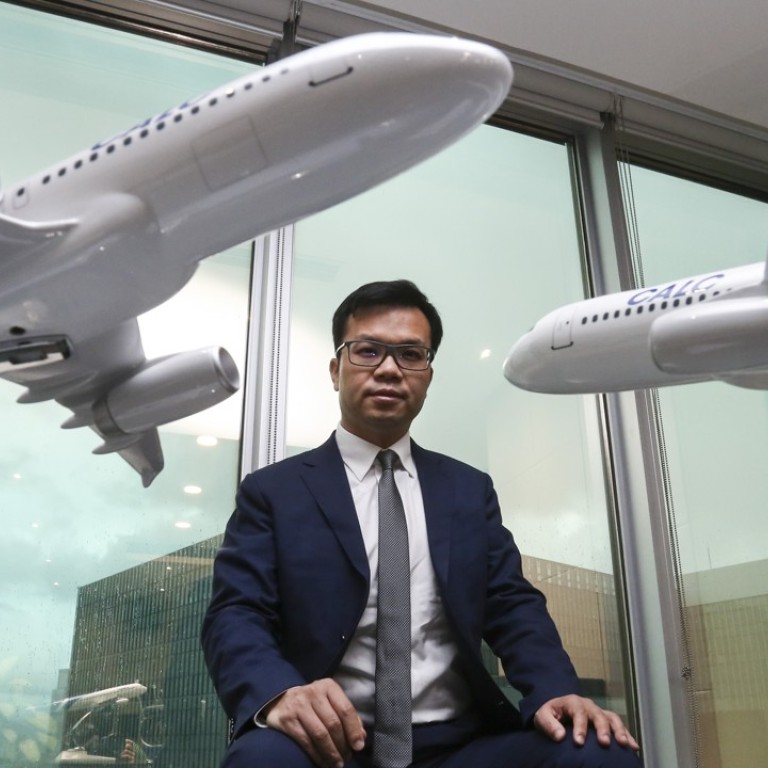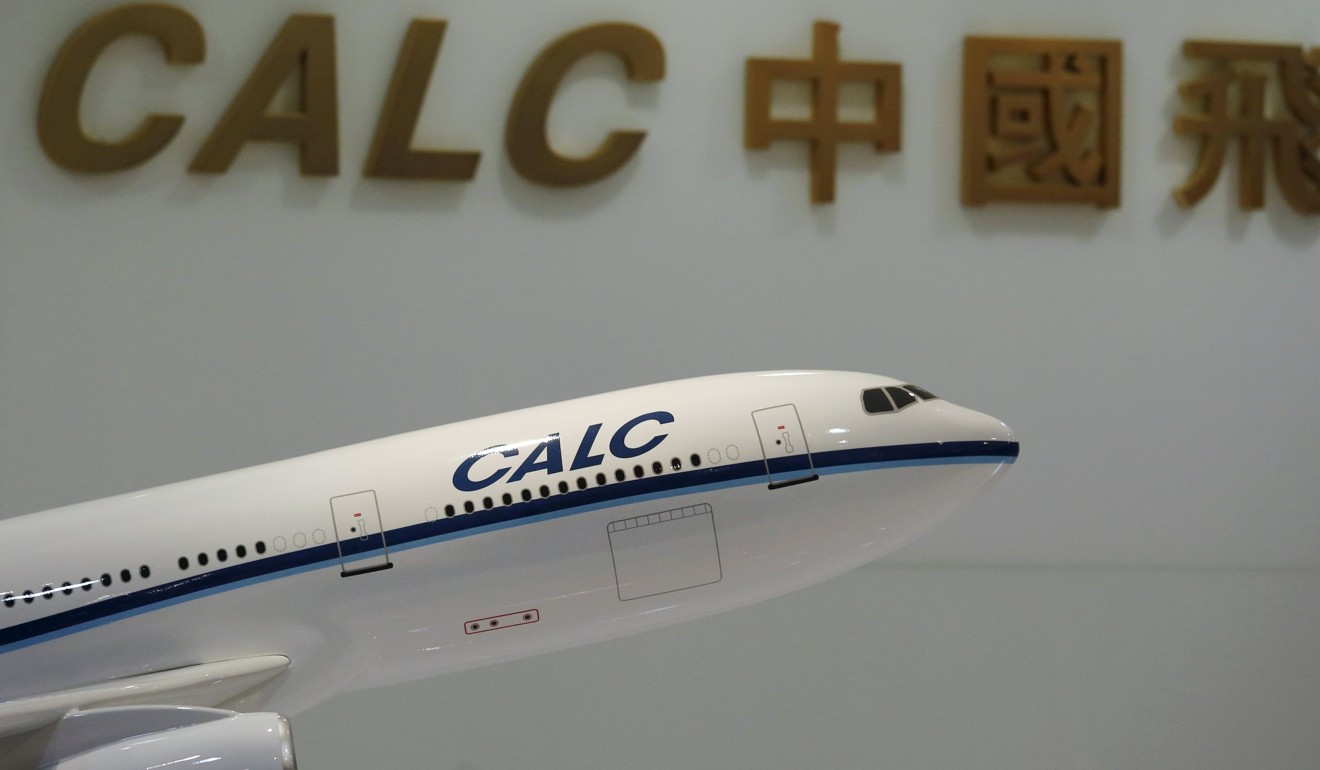
Exclusive | China Aircraft Leasing seeks overseas customers with aggressive fleet expansion
Aircraft leasing could be an economic driver for Hong Kong, which relies too heavily on its property market, says chief executive
China Aircraft Leasing Group(CALC) aims to expand its fleet by a fifth to no less than 100 aeroplanes this year and build a 50:50 mix of overseas and domestic clients by 2022, said chief executive Mike Poon.
The Hong Kong-listed lessor also has ambitious plans for its customer base. Its goal is to provide services to 100 clients by 2023, up from 16 last year, Poon told the South China Morning Post.
The small airlines and the newcomers are the ones that most need to find aircraft leasing partners
“We will see our fleet size increasing to 100 aircrafts this year, and our customers will rise to 100 airlines in the first stage of 2023,” said Poon, who ordered 50 Boeing 737 Max planes for US$5.8 billion last month. In 2014, CALC placed a US$10 billion order with Airbus for 100 of its A320 jets. He said the company is on schedule to expand its fleet size to 232 aircraft by 2023 after the Boeing order.
CALC, which is backed by China Everbright, had 83 planes as of the end of March, mainly models in the Airbus A320 series.
“The purchase of Boeing models means we can serve a more diversified range of customers, catering for airlines who only require Boeing aircrafts, for example,” said Poon, who expects to take delivery of no fewer than 40 aircraft annually starting in 2020, more than double the amount last year.
Globally, leased aircraft make up 45 per cent of the total market. In China, that figure is just 25 per cent but growing rapidly amid rising aircraft demand.

The country’s domestic jet maker, Commercial Aircraft Corp of China (Comac), was even more aggressive in its forecast, predicting 6,865 passenger planes would need to be delivered by 2035.
“The small airlines and the newcomers[who do not have enough money to buy aircraft] are the ones that most need to find aircraft leasing partners,” said Poon. “A good partnership with lessors will substantially cut airlines’ costs, which mainly come from aircraft and fuel.”
Hong Kong is well equipped to be a successful global leasing centre because it has well established law and tremendous Chinese markets. The only thing we don’t have is policy support
CALC is betting on Hong Kong ascending to become a top global aircraft leasing centre to rival the likes of Singapore and Ireland. The city took a big step in the right direction by announcing it will reduce the effective tax rate on aircraft leasing companies to less than 10 per cent from 30 per cent later last month.
“No aircraft lessor would consider Hong Kong before the tax reduction, but cutting it means Hong Kong stands at the same starting line [as its rivals] for the aircraft leasing business,” said Poon. “Hong Kong is well equipped to be a successful global leasing centre, I think, because it has well established British law, strong financing support and tremendous Chinese markets. The only thing we do not have is policy support.”
Aircraft leasing could be a powerful driver of Hong Kong’s economy if “the city can take one third of the market from Ireland and Singapore,” said Poon, who believes Hong Kong is too financially reliant on its property market.
“Hong Kong, as a global finance centre, needs other sectors to support further development of its financial landscape, not just focusing on property,” said Poon. “Building a global aircraft leasing centre will help the city to take more from the trillion-dollar market.”
In 2016, global revenue from airline-related business reached US$2.7 trillion and carriers made profit of US$30 billion and served four billion travellers. China expects to surpass the US as the world’s biggest aviation market by 2024.

